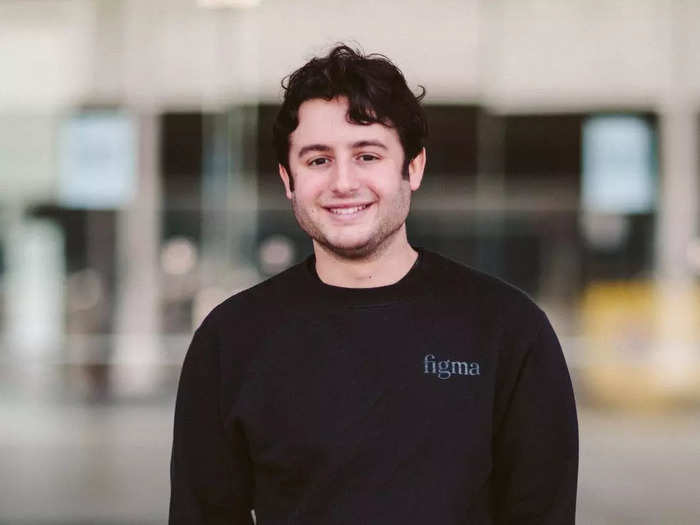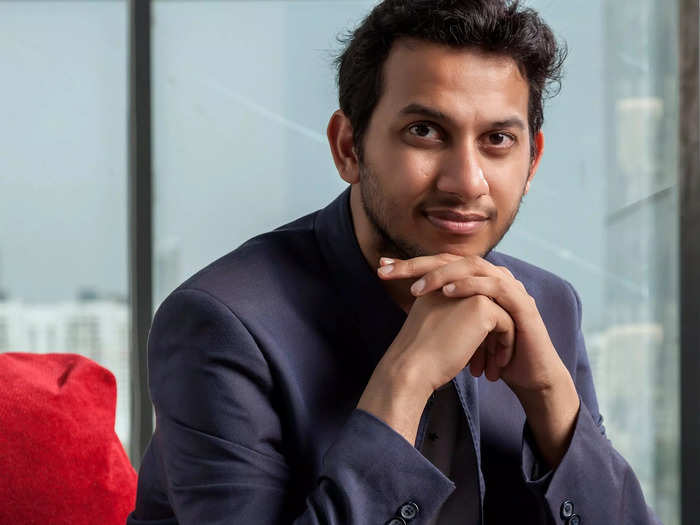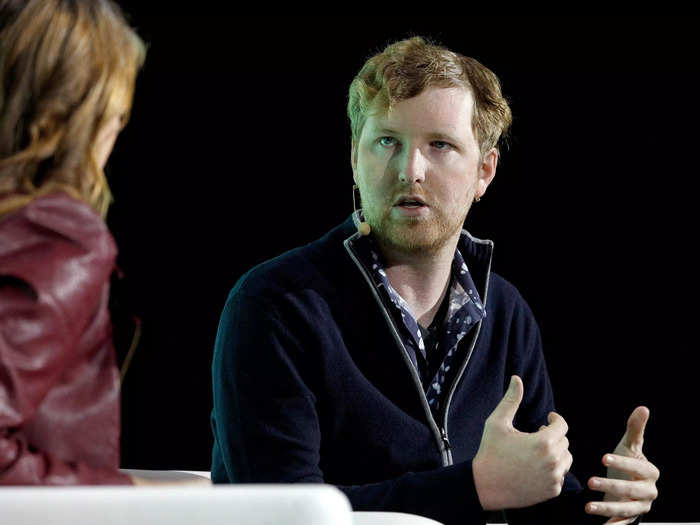Ethereum cofounder Vitalik Buterin; Peter Thiel; Luminar CEO Austin Russell.Michael Ciaglo/Getty Images; Marco Bello/Getty Images; Kimberly White/Getty Images for TechCrunch
- Peter Thiel's fellowship program has been doling out $100,000 checks to young entrepreneurs for 11 years now.
- The only catch? You have to drop out of college to pursue your big idea.
Peter Thiel has been paying young adults $100,000 to drop out of college and launch their own companies for 11 years now.
The famed Silicon Valley investor and former Trump adviser founded his Thiel Fellowship program through his foundation for students aged 22 or younger.
The idea was to help young people see their budding ideas funded and realized with access to coaching from noted CEOs and other entrepreneurs, without the burden of attending classes in a university setting. The program encourages the fellows to return to school afterwards, though not all do.
The likes of Ethereum champion Vitalkin Buterin, Adobe rival Figma, and others saw the light of day thanks to Thiel, who has been open about his stance on higher education being overrated.
"For some people, it's still worth it," Thiel told Newsweek in early 2017, referring to earning a college degree. "But a lot of graduates can't get good jobs; they're saddled with debt and moving back home with their parents. People are starting to see that something has gone wrong."
Here are some of the projects that have come out of Thiel's fellowship.
Ethereum
Buterin. Michael Ciaglo/Getty Images
Nowadays, Ethereum is a household name for anyone even remotely following the world of crypto. It's a decentralized network with a native coin, Ether, that has become the second-largest cryptocurrency by market cap.
But back in 2014, its then-20-year-old founder Vitalkin Buterin sought help from Thiel's prolific fellowship program to help push forward his project, which he had already launched — he wrote a white paper on Ethereum in 2013 and had co-launched Bitcoin Magazine, a news outlet highlighting developments in the digital currency sphere.
He dropped out of the University of Waterloo after a year of studying computer science.
In 2014, Ethereum raised $15.5 million in an initial coin offering (ICO,) which involves companies selling crypto to users in the hope that it appreciates in value.
Figma
Field. Figma
Dylan Field was 19 years old when he won a spot in Thiel's fellowship in 2012 and dropped out of Brown University.
His idea originally involved drones — it was a long, messy road before his idea for Figma crystallized enough to get funding.
Figma, a design software company that allows users to create, share, and collaborate on their work in the cloud, was founded in 2012 but didn't actually start shipping its product until 2015.
It evolved into a major rival of Adobe and is now valued at $10 billion. Some of the largest tech firms, like Dropbox, Twitter, and Slack, use the software.
Field has a net worth of $1 billion and has made Forbes' 30 under 30 list. He posted on Twitter earlier this month celebrating Figma's 10-year anniversary and thanking the company's "Figmates," a nickname for employees.
Polkadot
Polkadot was one of three altcoins that Greenberg listed. Jakub Porzycki/Getty Images
Like Ethereum, Robert Habermeier had already cofounded Polkadot alongside Ethereum cofounder Gavin Wood (who coined the term Web3) and was 20 years old when he won the Thiel Fellowship in 2018. He also had already dropped out of college to focus on building Polkadot, a blockchain platform with superior scalability that lets different blockchains interact with each other. Its cryptocurrency is now ranked the 10th largest by market cap.
Polkadot held an initial coin offering in 2017 and raised $140 million by selling half of its 10 million token supply. It's now a major crypto player in the industry.
OYO Rooms
Oyo CEO Ritesh Agarwal. Oyo
Ritesh Agarwal was 19 years old when he won in 2013.
He attended Stanford University for one month before dropping out with Thiel's funding in hand. His idea was to launch a network of affordable hotels and accommodation options, and though it took him a couple tries to get it right, he eventually launched OYO Rooms ("on your own") in India that same year.
The company has raised $1.6 billion in funding since and is valued at $9 billion. It operates in 35 countries.
Luminar Technologies
Luminar founder and CEO Austin Russell. Kimberly White / Stringer
Austin Russell founded his company, a lidar sensor maker for self-driving cars, when he was a 17-year-old high schooler. He went to Stanford briefly before dropping out at age 18 when he won the Thiel Fellowship.
Luminar went public under the ticker symbol LAZR in December 2020 via SPAC, raising $590 million from the merger.
The company has a partnership with car giant Volvo to build key features for its fully electric car project.





